Have you ever wondered if Neem Oil, the traditional Indian pesticide derived from neem trees, kills bees in the garden? This blog post will discuss the potential dangers of neem oil to pollinators like bees and provide tips to ensure your garden is bee-friendly despite the presence of neem oil. While not all bees are affected by neem oil, it’s important to educate yourself on how best to use this traditional herbicide if you want to protect your buzzing visitors.
What are honey bees?
Honey bees are the world’s most important pollinators of food crops. They are social insects that live in large colonies or hives, and their population is declining at an alarming rate worldwide. Honey bees have been around for millions of years, but they are now threatened by habitat destruction, pesticide use, climate change, and disease.
Its body is divided into three parts: the head, thorax (middle section), and abdomen (back section). The head has two large eyes on either side and several smaller ones in the center. Two antennae sit atop its head as well as mouthparts used to suck nectar from flowers. Its thorax is covered in yellow and brown stripes, and its abdomen is a fuzzy golden color. Honeybees have four wings which are used for flying long distances in search of food or when relocating the hive.
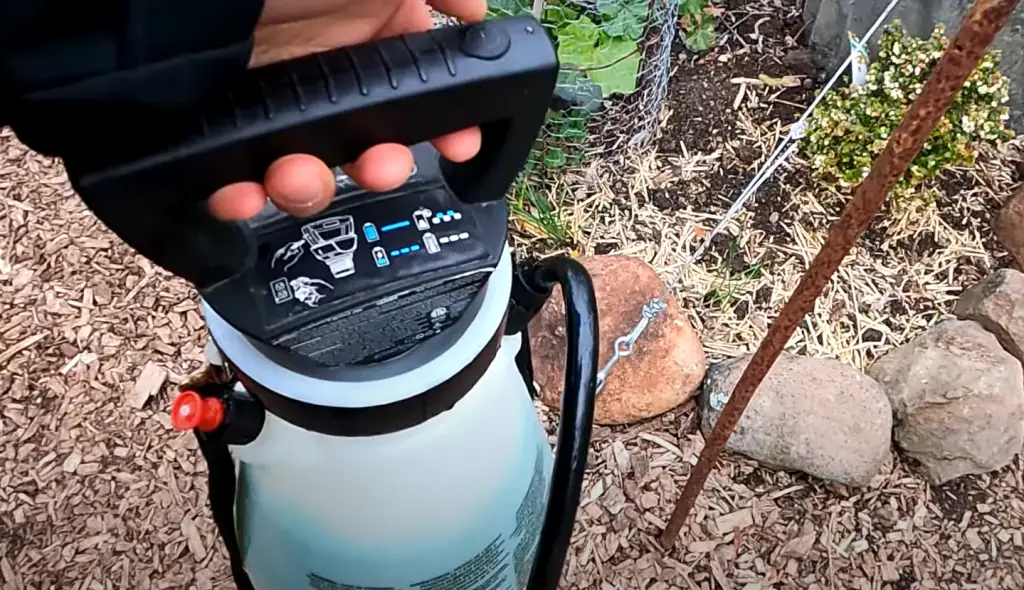
Honey bees live in colonies composed of three types of individuals: workers, drones, and a queen bee. The worker bees are all female and they are responsible for collecting pollen and nectar to make honey, building the wax comb that stores it, cleaning the hive, grooming their queen, defending against invaders (such as wasps), and more. Drones are males whose only job is to mate with the queen. Finally, the queen bee lays eggs to ensure there are always new members of the colony.
Honey bees are essential for pollinating plants and crops, such as apples, almonds, and blueberries. Every year, honey bee colonies must be moved to different regions to ensure proper pollination of food sources. Without honey bees, the agricultural system would suffer greatly. That’s why it is so important that you take steps to protect them from further decline [1].
Neem Oil Uses in the Garden
Neem oil insecticide
It is a popular choice for organic gardeners and farmers. It is an excellent natural pesticide that can be used to control a wide variety of bugs, including aphids, whiteflies, spider mites, and beetle larvae. Neem oil works by disrupting the reproductive cycle of insects and interfering with their growth hormones.
Neem oil can be used as a foliar spray or soil drench to protect plants from insects and disease. When applied as a foliar spray it should be mixed with water in the ratio of 1 teaspoon per gallon of water. Make sure to cover the entire plant, including the undersides of leaves. Neem oil should be reapplied every 7-14 days as needed.
Neem oil fertilizer
Neem oil can also be used as a fertilizer to promote healthy growth in plants. It is high in fatty acids and essential oils which help provide nutrients to the soil that will help increase microbial activity and improve soil fertility. To use neem oil as a fertilizer simply mix it with water at a ratio of 1 tablespoon per gallon of water and apply it as a foliar spray or drench around the base of the plant.
Neem oil fungicide
Neem oil also has antifungal properties which make it effective at controlling diseases such as blight, mildew, rust, leaf spots, and scab. To use neem oil as a fungicide mix 1 teaspoon of neem oil per gallon of water and apply it as a foliar spray. Make sure to cover the entire plant including the undersides of leaves. Neem oil should be reapplied every 7-14 days as needed until the disease is under control [2].
When Is Neem Oil Safe For Bees?
Don’t Spray Near Hives
Neem oil is a natural insecticide and fungicide that, when used in the right way, can be safe for bees. However, while it’s not toxic to bees, spraying neem oil near bee hives should generally be avoided. This is because it may affect the health of some species of bees by reducing their ability to collect nectar and pollen.
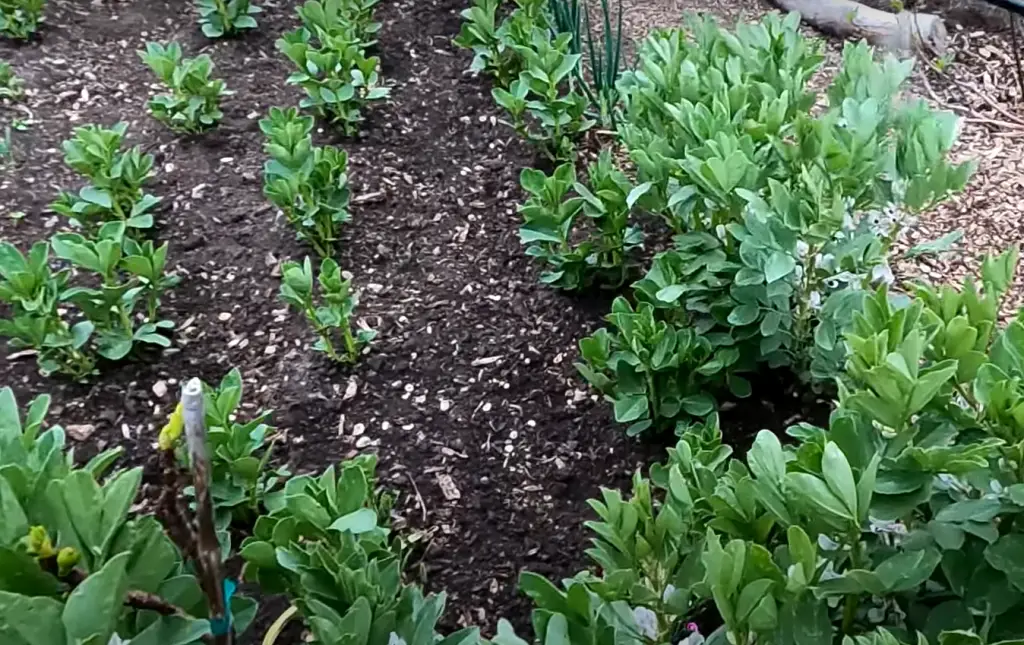
If you choose to apply neem oil near bee hives, always use the lowest concentration possible and never apply it directly onto or around the hive itself. Additionally, avoid spraying during times when there are large numbers of foraging bees as this increases the risk of contact with them.
Don’t Spray Blossoms That Attract Bees
When using neem oil for pest control, it’s important to avoid spraying any blossoms that attract bees. Many plants have flowers that provide an important source of nectar and pollen for bees, so if you spray neem oil on them, this could harm the bee population in your area. It’s best to either avoid these plants or wait until after the blooming period has finished before applying neem oil.
Wait Until Evening To Spray
To further reduce the chances of harming bees with neem oil, wait until late evening when the majority of bees are back in their hives before you apply it. This will give them less time to contact the product and significantly reduces the risk of exposing them to it. Additionally, you should avoid spraying neem oil on windy days as this also increases the chances of bees being exposed to it.
Understand The Risks
Neem oil is generally safe for bees when used responsibly, however, there are always risks associated with pesticide use. Whenever possible, try to use other methods to control pests before resorting to using chemicals like neem oil. Additionally, make sure that you read and understand instructions on product labels before applying them to reduce the risk of harming any beneficial insects like bees.
Use Soil Soaks or Neem Cakes as Part of Your Treatment
If you do need to use neem oil for pest control, it’s much safer to apply it as a soil soak or neem cake rather than spraying. These methods release the active ingredients slowly over time and are less likely to affect beneficial insects like bees. Additionally, they can help to reduce the amount of chemicals used while still providing effective pest control [3].
How Can Neem Oil Kill Honey Bees?
Neem oil is a natural insecticide that can be toxic to honey bees. The active ingredient in neem oil, azadirachtin, disrupts the endocrine system of insects and prevents them from reproducing or feeding. Neem oil also affects the nervous system of honeybees, causing paralysis and death. When exposed to neem oil, adult bees will become disoriented and unable to return to their hive. This makes them more vulnerable to predators or other environmental hazards such as cold temperatures or dehydration. Honey bee larvae may also be affected by consuming contaminated pollen brought back to the hive by adult worker bees.
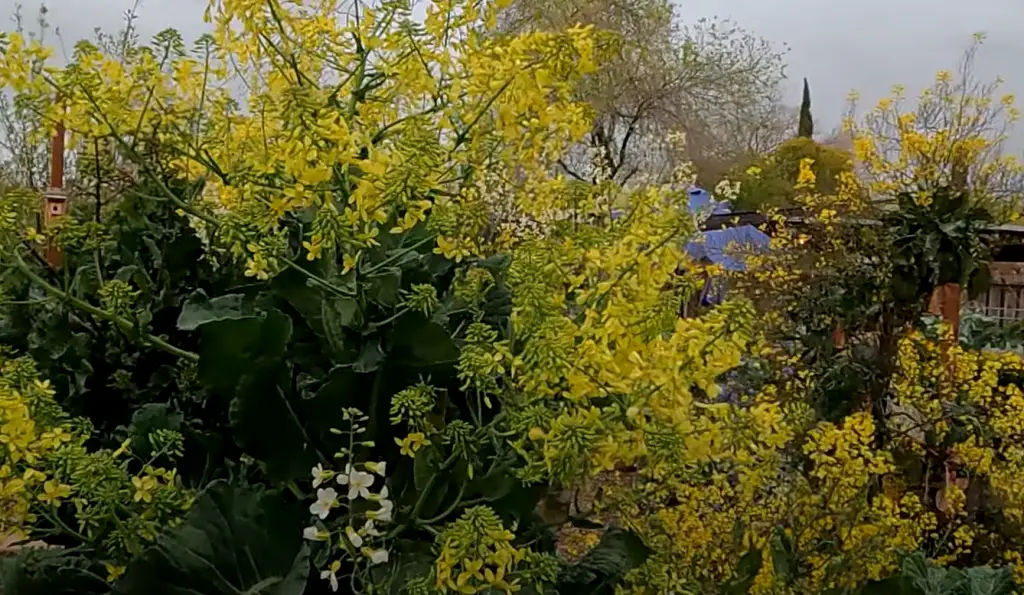
For neem oil to be effective against honeybees it must come into contact with the insects directly. Spraying neem oil around the outside of a beehive or nest will not affect honey bees, as they do not normally come into contact with it. Neem oil must be applied directly to flowering plants that bees use for pollination in order to affect them. This makes it important to exercise caution when using neem oil and only apply it where there are no bee populations nearby. If used incorrectly, neem oil can cause significant harm to bee populations in the area, so always read the instructions before applying it.
By planting a variety of flowering plants and shrubs, you can attract beneficial insects such as ladybugs and parasitic wasps that will naturally keep pest populations in check. Additionally, encouraging birds in your garden can help reduce the overall number of insect pests.Finally, by providing a clean source of water nearby you can encourage bees and other pollinators to visit your garden without having to resort to chemical treatments such as neem oil. By implementing these simple measures, you can maintain healthy bee populations while still protecting your crops from unwanted pests.
What Are The Side Effects Of Neem Oil in the Garden?
Neem oil is an effective pesticide and fungicide, but it can have some negative side effects. Too much of the oil can damage plants and beneficial insects, including bees. Neem oil may also be toxic to aquatic organisms if it enters waterways. In addition, neem oil has a garlic-like odor that may be unpleasant to some people.
To avoid any potential problems when using neem oil in the garden, always follow the manufacturer’s instructions carefully and rinse off any residue with water after application. If you are concerned about potential toxicity for fish or other aquatic life, consider using a different insect control method around bodies of water. Finally, take care not to spray any blooming flowers as neem oil could contaminate the pollen and honey of bees. With proper use, however, neem oil can be an effective and safe solution for garden pests.
Alternatives to Neem Oil for your garden
If you are concerned about the potential toxicity of neem oil, there are several other options available to help with garden pest control.
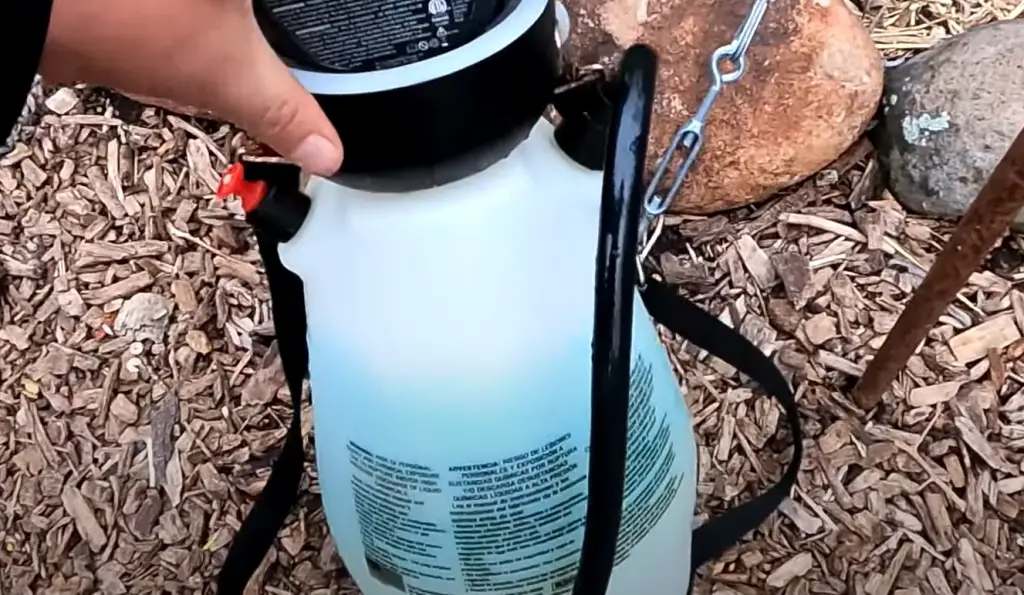
Some alternative methods include introducing beneficial insects like ladybugs or lacewings, using row covers and screens to keep pests away from plants, and hand-picking pests off of foliage. Other natural insecticides like pyrethrin, made from chrysanthemums, can also be effective against certain types of garden pests without the risk of damaging beneficial insects. Finally, planting flowers that attract beneficial insects is another way to create a healthy garden ecosystem that naturally controls pest populations. With careful monitoring and attention to detail, these alternatives can provide an effective solution for keeping your garden free from unwanted pests.
FAQ
How can I use neem oil without killing bees?
Neem oil is a safe and natural insect repellent, but it can be toxic to honeybees if not used correctly. To keep bees safe while using neem oil in your garden, follow these steps:
- Avoid application during bloom time when there are open flowers present as this is when bees are most active.
- When spraying neem oil, avoid direct contact with the bees themselves or any blooms they may be visiting at the time of application.
- Make sure to apply late in the evening or early in the morning when bees are less likely to be flying around your garden area.
- Use an organic formulation specifically designed for use near beneficial insects like bees (e.g. Eco-Neem or Neemix 4.5).
- Read the label carefully and follow all directions for the safe use of the product.
- Monitor your garden and bee activity after application to make sure that bees are not being harmed by the neem oil treatment.
- Use other methods of pest control such as handpicking, companion planting, trap plants, or biological controls whenever possible instead of chemical treatments like neem oil.
How often should I apply neem oil?
The frequency of application depends on the severity of the pest infestation and your local climate.
Once the pests are gone, neem oil can be applied as needed or on a preventative schedule. As always, read and follow label directions carefully for any product you use.Are there any precautions I should take when using neem oil?
Yes! Neem oil can be toxic if not used correctly, so please read and follow all label instructions carefully when using this product in your garden. Additionally, it is important to avoid contact with skin or inhalation of spray mist; wear long sleeves and gloves during application as well as a mask if spraying near your face. Care should also be taken to avoid contact with beneficial insects like bees, as neem oil can be toxic to them if not used correctly. Finally, before using any pesticide, always check the label for applicability and safety precautions.
Does neem oil kill all insects?
No, neem oil is a selective insecticide that does not affect beneficial insects like honeybees or ladybugs. It works by disrupting the hormonal system of certain pests, making it an effective control for many common garden pests but will not harm beneficial insects when used correctly. However, it is important to read and follow label instructions carefully for any product you use in your garden.
What does neem oil kill in the garden?
Neem oil can be an effective control for many common garden pests, including aphids, whiteflies, mites, nematodes, and certain caterpillars.
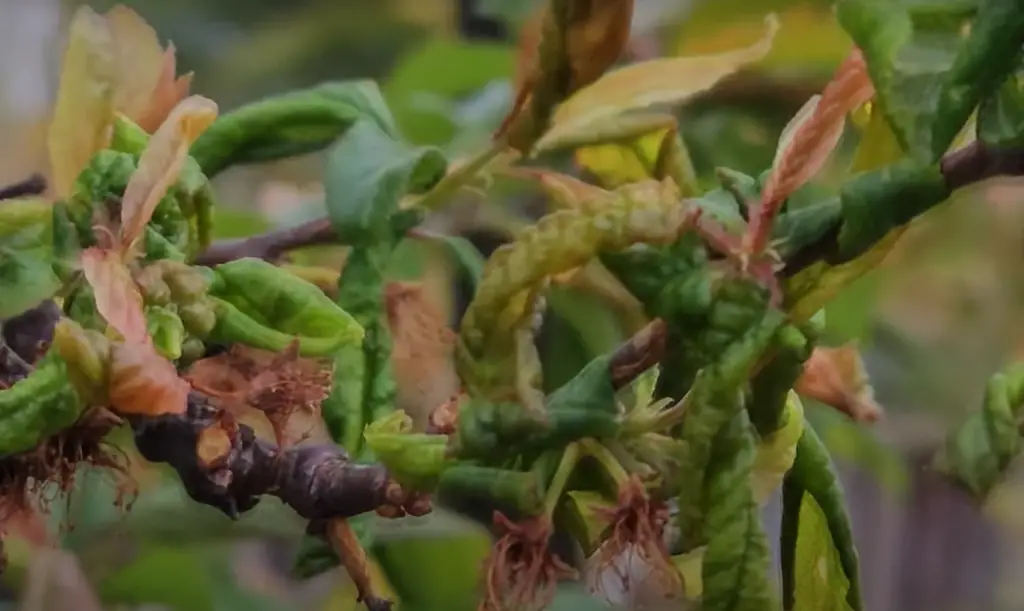
It works by disrupting the hormonal system of these pests, making it a safe and natural alternative to chemical pesticides. However, it is important to read and follow label instructions carefully for any product you use in your garden.
When should you not spray neem oil?
Neem oil should not be sprayed during bloom time when there are open flowers present, as this is when bees are most active. It is also important to avoid contact with beneficial insects like bees, as neem oil can be toxic to them if not used correctly.
Are there any other ways to use neem oil in my garden?
Yes! Neem oil can also be used as a soil drench or foliar spray (a diluted solution applied directly to plants). Additionally, you can sprinkle neem granules around the base of your plants as a preventative measure against pests. Lastly, you can make a homemade “tea” by steeping neem leaves in water and applying the solution to your plants. All of these methods can be effective tools for controlling pests in your garden, but it is important to read and follow label instructions carefully for any product you use.
As always, the best way to protect your plants from pests is to practice good gardening habits such as rotating crops, removing diseased or damaged plant material, avoiding overcrowding, and keeping gardens well-maintained. With minimal effort and careful consideration of the environment around you, you can keep your garden healthy and safe from pests without harming beneficial insects like bees.
Why use neem oil?
Neem oil is an effective and natural way to control pests in your garden without harming beneficial insects like bees. It works by disrupting the hormonal system of certain pests, making it an effective control for many common garden pests. Additionally, neem oil has antifungal properties that can help prevent and treat fungal infections on plants.
Where should you not use neem oil?
Neem oil should not be applied directly to open flowers, as this is when bees are most active. It is also important to avoid contact with beneficial insects like bees, as neem oil can be toxic to them if not used correctly.
Does neem oil attract any bugs?
No, neem oil does not attract any bugs. In fact, it is an effective way to control certain pests without harming beneficial insects like bees. However, it is important to read and follow label instructions carefully for any product you use in your garden.
How long does neem oil last on plants?
The effects of neem oil typically last up to 7-10 days after application, depending on weather conditions and the type of pest being controlled.
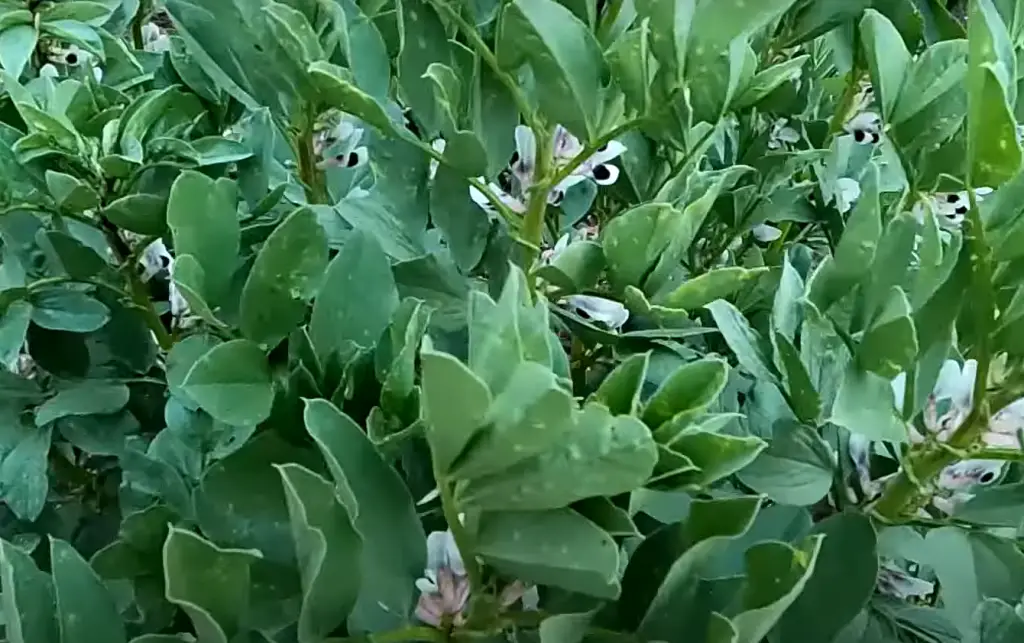
Additionally, applications should be repeated every 7-14 days as needed until the desired results are achieved.
What bugs don’t like neem oil?
Neem oil can be an effective control for many common garden pests, including aphids, whiteflies, mites, nematodes, and certain caterpillars. However, it is important to read and follow label instructions carefully for any product you use in your garden. Additionally, neem oil will not harm beneficial insects like bees when used correctly. By following these instructions and taking care of the environment around you, you can keep your garden healthy without harming beneficial insects.
How long does neem oil take to work?
Neem oil usually takes about 24 hours to take effect on pests. However, the exact amount of time will vary depending on weather conditions and the type of pest being controlled. Additionally, applications should be repeated every 7-14 days as needed until the desired results are achieved. With minimal effort and careful consideration of the environment around you, you can keep your garden healthy and safe from pests without harming beneficial insects like bees.
Can you use too much neem oil on plants?
Yes, it is possible to use too much neem oil on plants. It is important to read and follow label instructions carefully for any product you use in your garden. Additionally, applying too much neem oil can be toxic to beneficial insects like bees, so it is important to avoid contact with them when using the product. If you are concerned about over-application, it may be best to talk to an expert before using neem oil on your plants.
What happens if you don’t dilute neem oil?
If you do not dilute neem oil before applying it to your plants, it can be toxic to beneficial insects like bees and can damage the leaves of the plants. Additionally, it is important to read and follow label instructions carefully for any product you use in your garden. Properly diluted neem oil will be much more effective at controlling pests without harming beneficial insects. By following these instructions and taking care of the environment around you, you can keep your garden healthy without harming beneficial insects.
Useful Video: Don’t Spray Neem Oil In Your Garden Before Seeing This!
Conclusion
So, does neem oil kill bees in the garden? In short, the answer is yes. Neem oil can be toxic to bees if they come into contact with it while it is still wet and in its most concentrated form. It’s best to avoid spraying neem oil products directly onto flowering plants where bees may be present. Whenever possible, try to limit your use of neem oil to times when bees are not likely to be present – such as early morning or late evening hours – and always dilute the product according to manufacturer instructions before using. With proper application and precautions, you should be able to keep both your garden and local bee populations safe from harm.
References:
- http://naturemappingfoundation.org/natmap/facts/honey_bee_712.html
- https://www.saferbrand.com/articles/benefits-uses-neem-oil-for-plants
- https://plantcaretoday.com/neem-oil-kill-bees.html





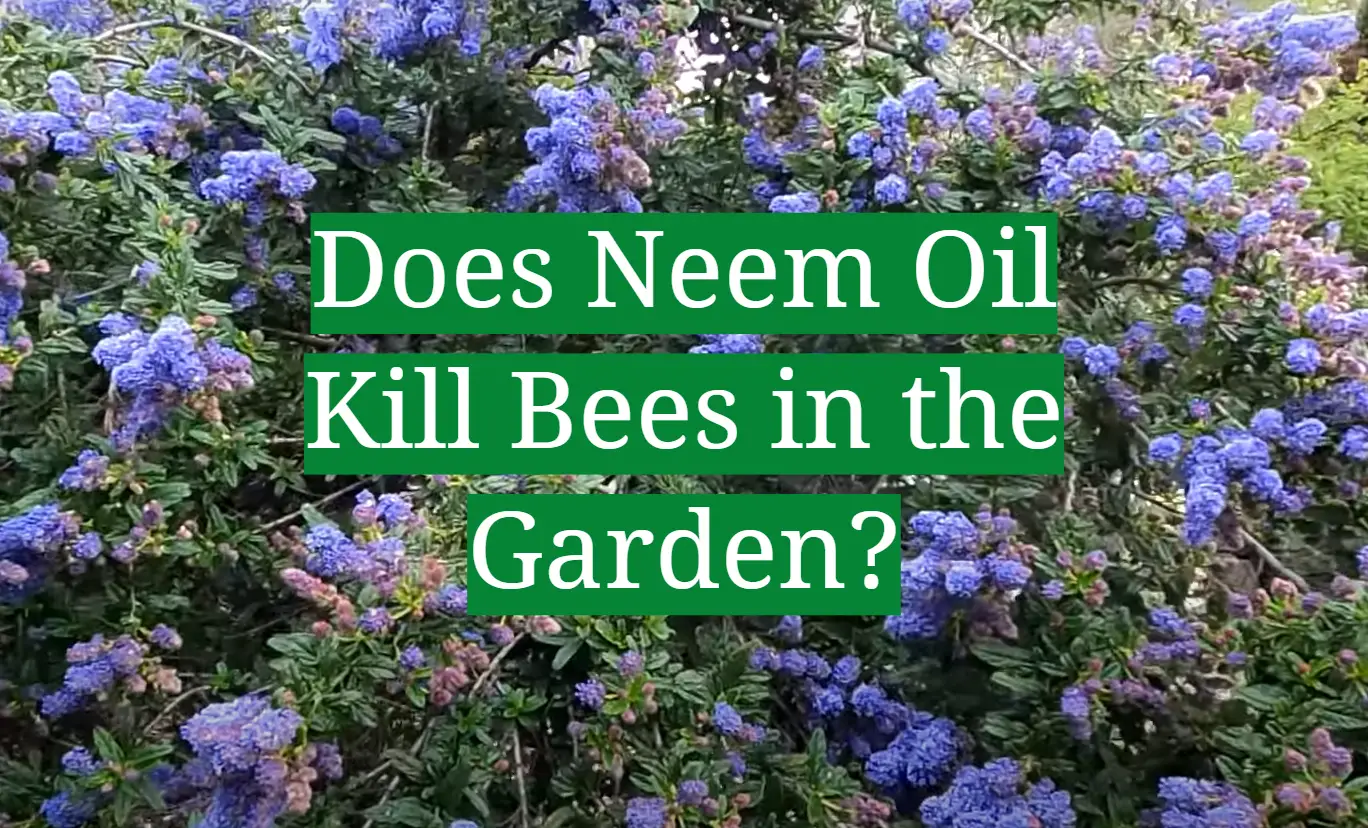
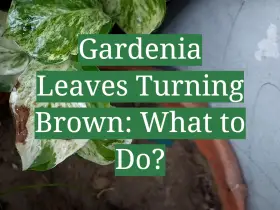
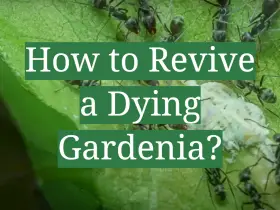
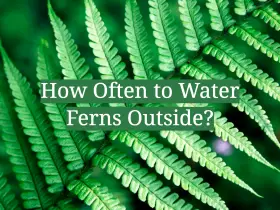
Leave a Reply
View Comments